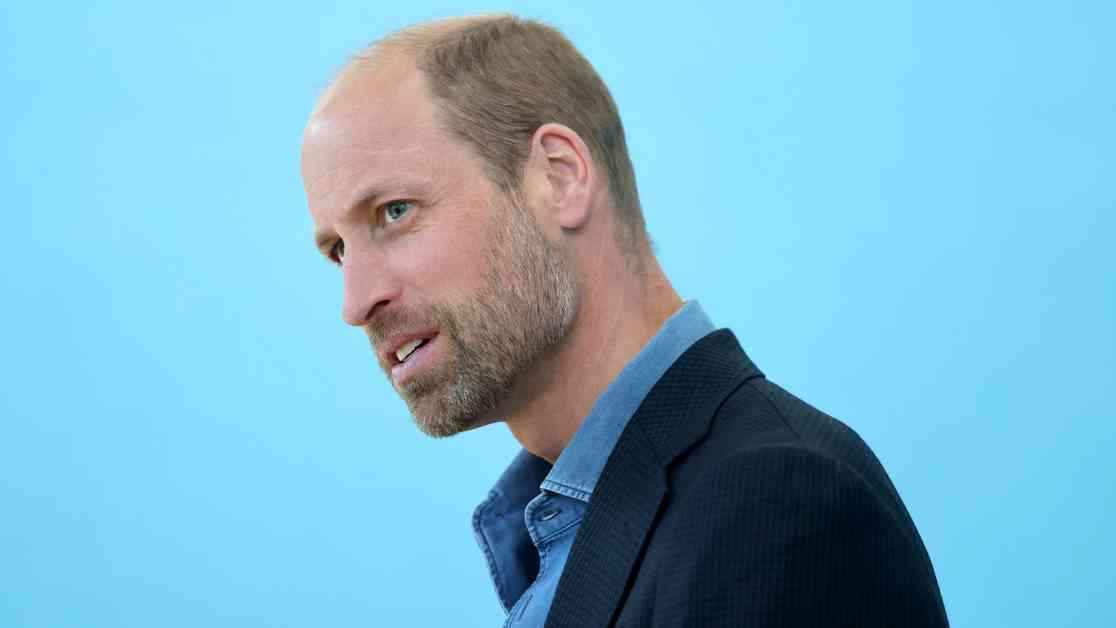Prince William, the Duke of Cambridge, was recently captured walking through Westminster Abbey in a beam of sunlight, with his father, King Charles, following closely behind. The contrast between the ornate robes of the Order of the Bath service, two weeks prior, and William’s more modern image was stark. It seems like he’s trying to distance himself from the traditional titles he holds and carve out a new, more intriguing role for himself – that of William, the quiet disruptor.
Time Magazine recently named Prince William and his wife, the Duchess of Cambridge, in its top 100 philanthropists list for their efforts in modernizing royal philanthropy. I had the opportunity to shadow the prince for a week as he engaged in various activities that may not have made headlines but showcased his commitment to doing things differently. One particular instance was on a Tuesday when he unexpectedly showed up at the Soho Hotel in London for the screening of films about wildlife rangers, a project he spearheaded. His passion for giving a voice to the voiceless was evident as he spoke about his drive behind the initiative.
Since November, Prince William has expressed his desire to redefine his royal duties with a lowercase ‘r’, signaling a shift in how he views his role in the monarchy. His team emphasizes the importance of ‘convening’, bringing people together, sparking conversations, and supporting community initiatives. This approach reflects his aspiration to be a 21st-century monarch who understands the evolving expectations of the people he serves.
Despite facing criticisms for his unconventional methods, Prince William remains steadfast in his mission to bring about change within the monarchy. His longtime commitment to doing things differently has been noted by those who have worked closely with him. Dr. Tessy Ojo, the chief executive of The Diana Award, highlighted how both Prince William and Prince Harry have always approached their royal engagements with a strategic mindset, focusing on making a meaningful impact rather than merely fulfilling ceremonial duties.
During a visit to Edinburgh, Prince William engaged with the local community in a more informal setting, emphasizing the importance of creating lasting impacts through collaborative efforts. His dedication to initiatives like Street Soccer Scotland demonstrates his commitment to using his platform for social good. The prince’s ability to balance his royal responsibilities with his role as a present father sets him apart from previous generations of royals.
While some may question the effectiveness of Prince William’s social impact work, there is no denying the potential long-term effects of his progressive approach. As he and his wife navigate their royal duties alongside raising their children, the couple’s emphasis on family-first values resonates with many. The future leadership of Prince William holds significant implications for the monarchy, hinting at a shift towards a more modern and relatable institution.
As Prince William continues to shape his vision for the future of the monarchy, his quiet yet impactful leadership style may pave the way for a new era of royal influence. While the traditional elements of royal life remain intact for now, the prince’s dedication to meaningful change could herald a transformation within the institution for generations to come.













